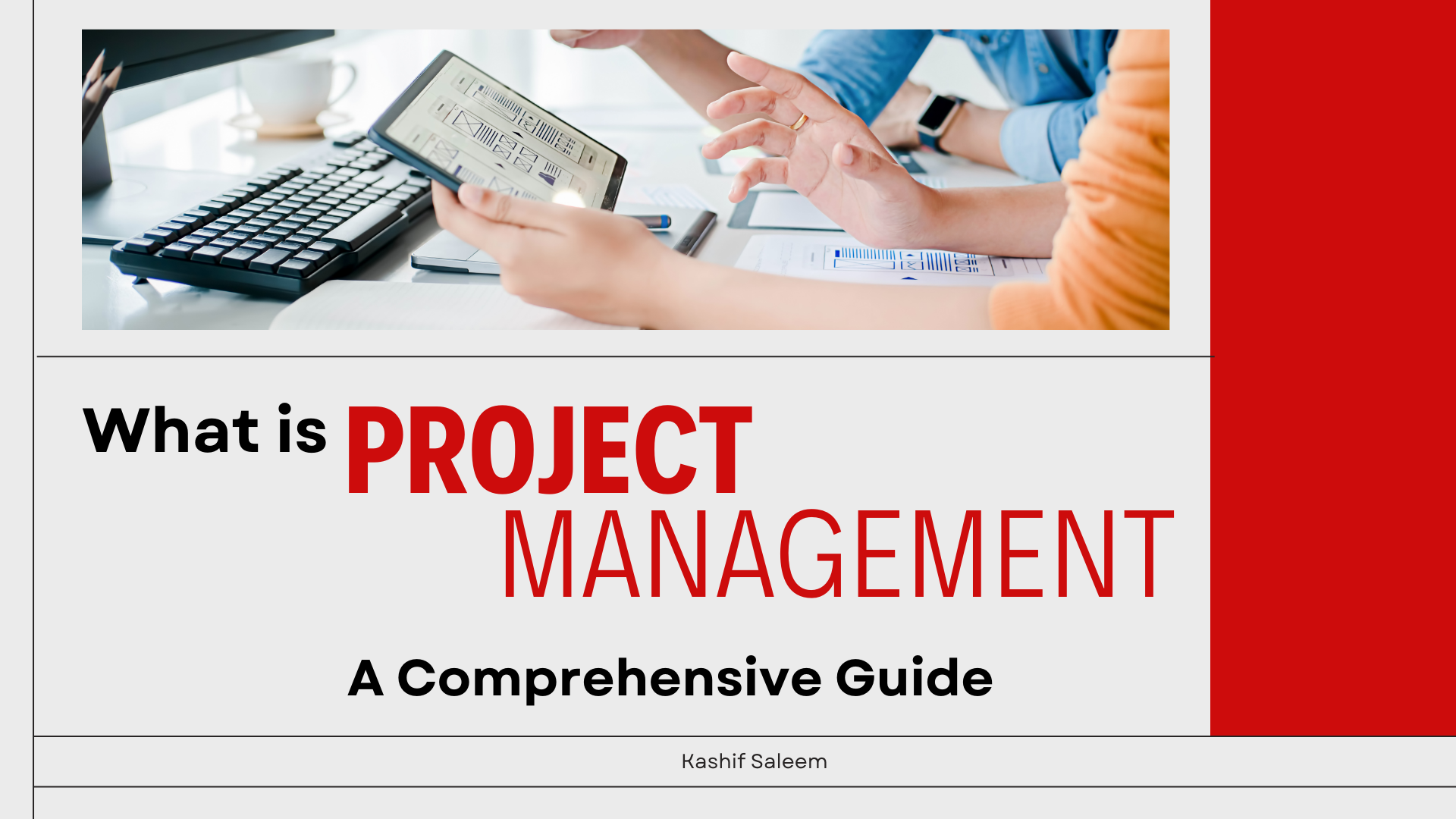Project management is an essential discipline that ensures the successful completion of tasks, projects, and objectives within an organization. Whether you are overseeing a construction project, launching a new product, or managing a marketing campaign, project management provides the framework for planning, executing, and delivering projects efficiently.
In this blog, we will explore what project management is, its importance, key methodologies, and best practices to help you understand how it plays a crucial role in modern business operations.
What is Project Management?
Project management is the process of planning, executing, monitoring, controlling, and closing a project to achieve specific goals within a defined timeframe and budget. It involves the application of knowledge, skills, tools, and techniques to meet project requirements effectively.
A project is a temporary endeavor undertaken to create a unique product, service, or result. Unlike ongoing operations, projects have a clear start and end point, making management crucial to ensuring their success.
The Importance of Project Management
Effective project management helps organizations in several ways:
- Improves Efficiency: By establishing a structured approach, project management enhances productivity and ensures optimal resource utilization.
- Enhances Quality: Project management ensures that deliverables meet the required standards and expectations.
- Reduces Risks: A well-managed project identifies potential risks early and implements strategies to mitigate them.
- Optimizes Resource Use: Proper allocation of resources, including time, budget, and personnel, leads to better project outcomes.
- Ensures Timely Delivery: Project managers create realistic schedules and deadlines, ensuring that tasks are completed on time.
- Facilitates Communication: A structured project management process ensures clear communication among stakeholders.
Key Phases of Project Management
Project management is typically divided into five phases:
1. Initiation
This phase defines the project’s purpose, scope, and feasibility. Key activities include:
- Identifying project objectives
- Conducting a feasibility study
- Defining stakeholders
- Preparing a project charter
2. Planning
The planning phase lays the foundation for project execution by outlining tasks, timelines, and resource requirements. This phase involves:
- Setting project goals and deliverables
- Defining the project scope
- Creating a detailed project schedule
- Allocating budget and resources
- Developing a risk management plan
3. Execution
In this phase, the project plan is implemented, and teams start working on their assigned tasks. Key activities include:
- Coordinating team members
- Managing resources
- Tracking progress
- Ensuring quality control
4. Monitoring and Controlling
Project managers track progress, measure performance, and make necessary adjustments to keep the project on course. Important aspects include:
- Measuring key performance indicators (KPIs)
- Identifying potential issues and risks
- Making necessary changes to project plans
5. Closure
The final phase involves completing all project deliverables and evaluating the project’s success. Key activities include:
- Conducting final reviews
- Documenting lessons learned
- Delivering the final product to stakeholders
- Closing project accounts
Popular Project Management Methodologies
Different industries and teams use various project management methodologies to achieve their goals. Some of the most widely used methodologies include:
1. Waterfall Methodology
- A linear approach where each phase must be completed before moving to the next.
- Suitable for projects with well-defined requirements, such as construction and manufacturing.
2. Agile Methodology
- A flexible, iterative approach that allows teams to respond to changes quickly.
- Commonly used in software development and IT projects.
3. Scrum Framework
- A subset of Agile that focuses on short work cycles called sprints.
- Best suited for teams that need continuous feedback and rapid delivery.
4. Kanban Method
- Uses visual boards to manage tasks and workflow.
- Ideal for teams handling continuous processes, such as customer support and marketing.
5. Lean Project Management
- Focuses on eliminating waste and maximizing efficiency.
- Frequently used in manufacturing and production industries.
Essential Skills for a Successful Project Manager
Project managers need a combination of technical and soft skills to lead projects effectively. Key skills include:
- Leadership – Guiding teams and making strategic decisions.
- Communication – Ensuring clear, transparent communication among stakeholders.
- Time Management – Prioritizing tasks and meeting deadlines.
- Problem-Solving – Identifying and addressing challenges proactively.
- Budget Management – Controlling costs and preventing financial overruns.
- Risk Management – Anticipating potential issues and creating contingency plans.
Best Practices for Effective Project Management
To ensure project success, follow these best practices:
- Define Clear Objectives – Set clear and achievable project goals.
- Engage Stakeholders Early – Keep all stakeholders informed and involved.
- Use the Right Tools – Leverage project management software like Trello, Asana, or Microsoft Project.
- Maintain Flexibility – Be prepared to adapt to unexpected changes.
- Monitor Progress Regularly – Track performance using reports and analytics.
- Encourage Team Collaboration – Foster a team-oriented environment for better results.
- Document Everything – Keep detailed records for future reference and improvement.
Conclusion
Project management is a critical discipline that helps organizations plan, execute, and complete projects successfully. By understanding its importance, methodologies, and best practices, businesses can enhance efficiency, minimize risks, and achieve their objectives effectively.
Whether you are a beginner or an experienced professional, mastering project management can lead to better career opportunities and improved business outcomes. Invest in the right tools, methodologies, and skills to excel in this field.
If you found this guide helpful, consider sharing it with your colleagues and exploring more project management resources to enhance your knowledge further!


